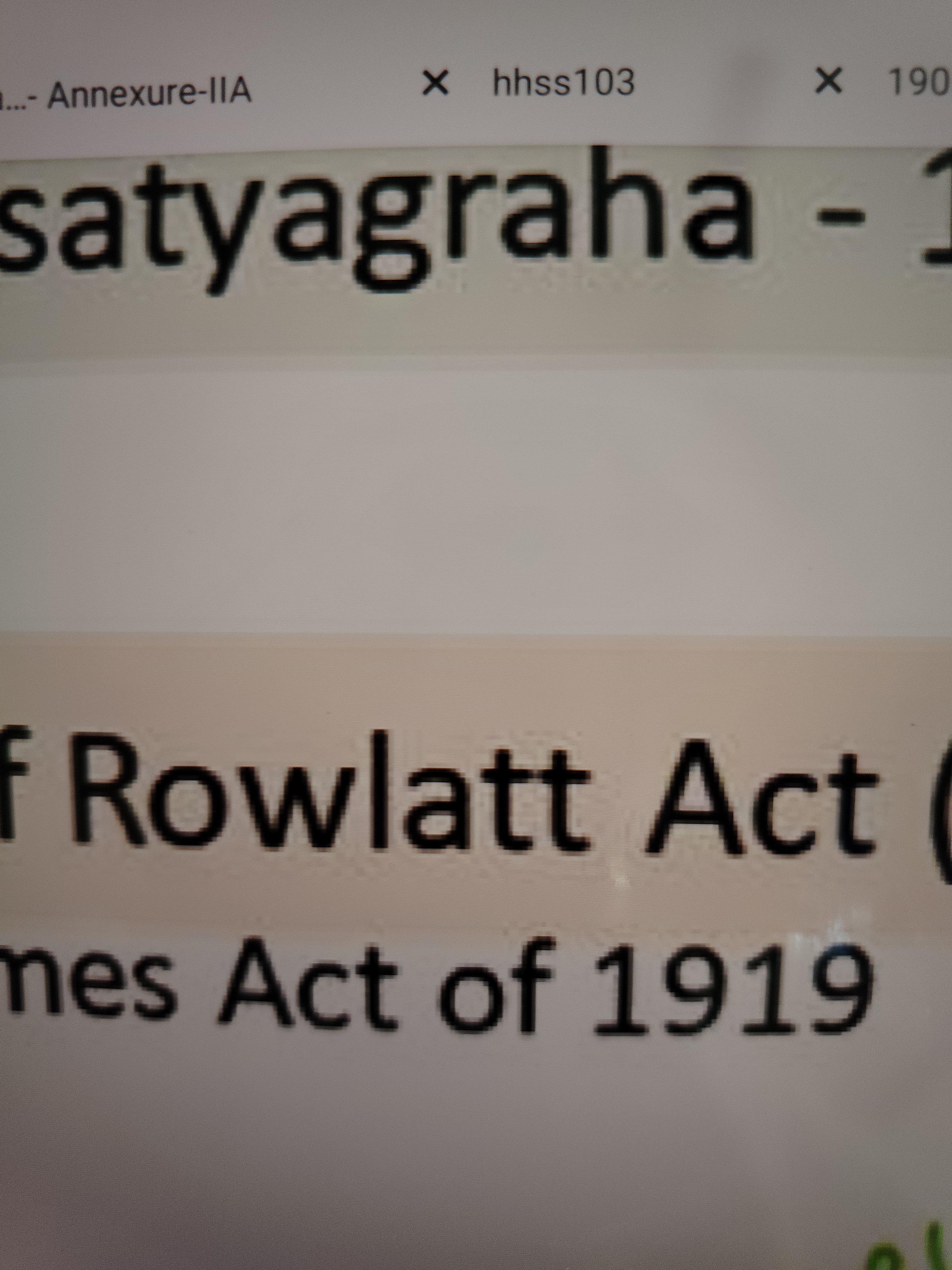What was the Rowlatt Act of 1919?

Understand the Problem
The question is asking about the Rowlatt Act of 1919, which is a historical topic related to India's struggle for independence. It likely seeks information on the significance and impact of the Act during that period.
Answer
The Rowlatt Act of 1919 allowed political cases to be tried without juries and permitted internment without trial.
The Rowlatt Act of 1919 allowed certain political cases to be tried without juries and permitted the internment of suspects without trial. It was implemented by the British Government to curb the growing nationalist movements in India.
Answer for screen readers
The Rowlatt Act of 1919 allowed certain political cases to be tried without juries and permitted the internment of suspects without trial. It was implemented by the British Government to curb the growing nationalist movements in India.
More Information
The Rowlatt Act was passed by the Imperial Legislative Council in British India to control increasing nationalist agitation against British rule. It allowed repressive measures like arrest and detention without trial, which led to widespread outrage in the country.
Tips
A common mistake is to confuse the Rowlatt Act with other repressive measures taken by the British Government in India. Remember, it specifically dealt with trying political cases without juries and detaining suspects without trials.
Sources
- Rowlatt Acts - britannica.com
- Rowlatt Act - Wikipedia - en.wikipedia.org
- Rowlatt Act & Jallianwala Bagh Massacre - History & Significance - byjus.com
AI-generated content may contain errors. Please verify critical information